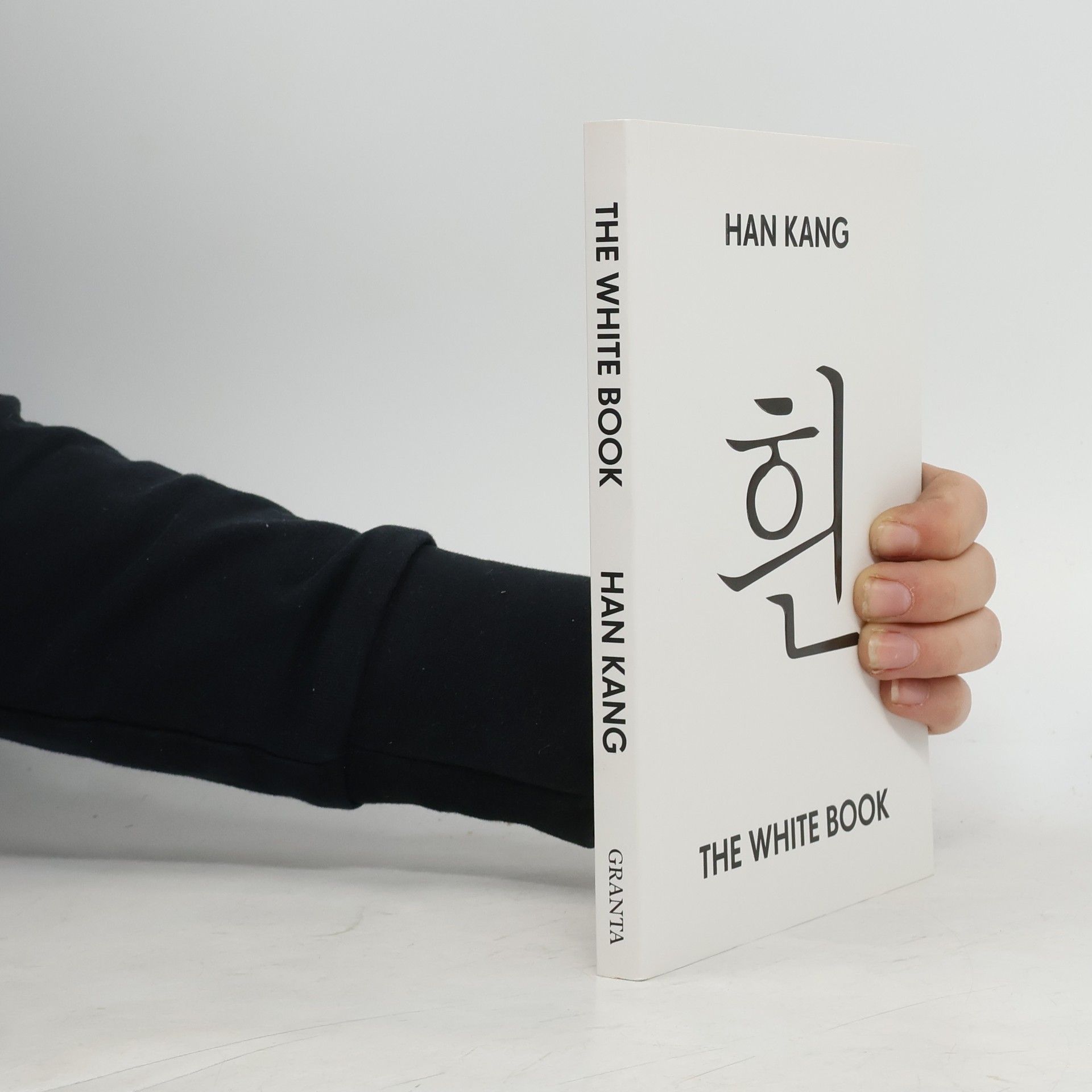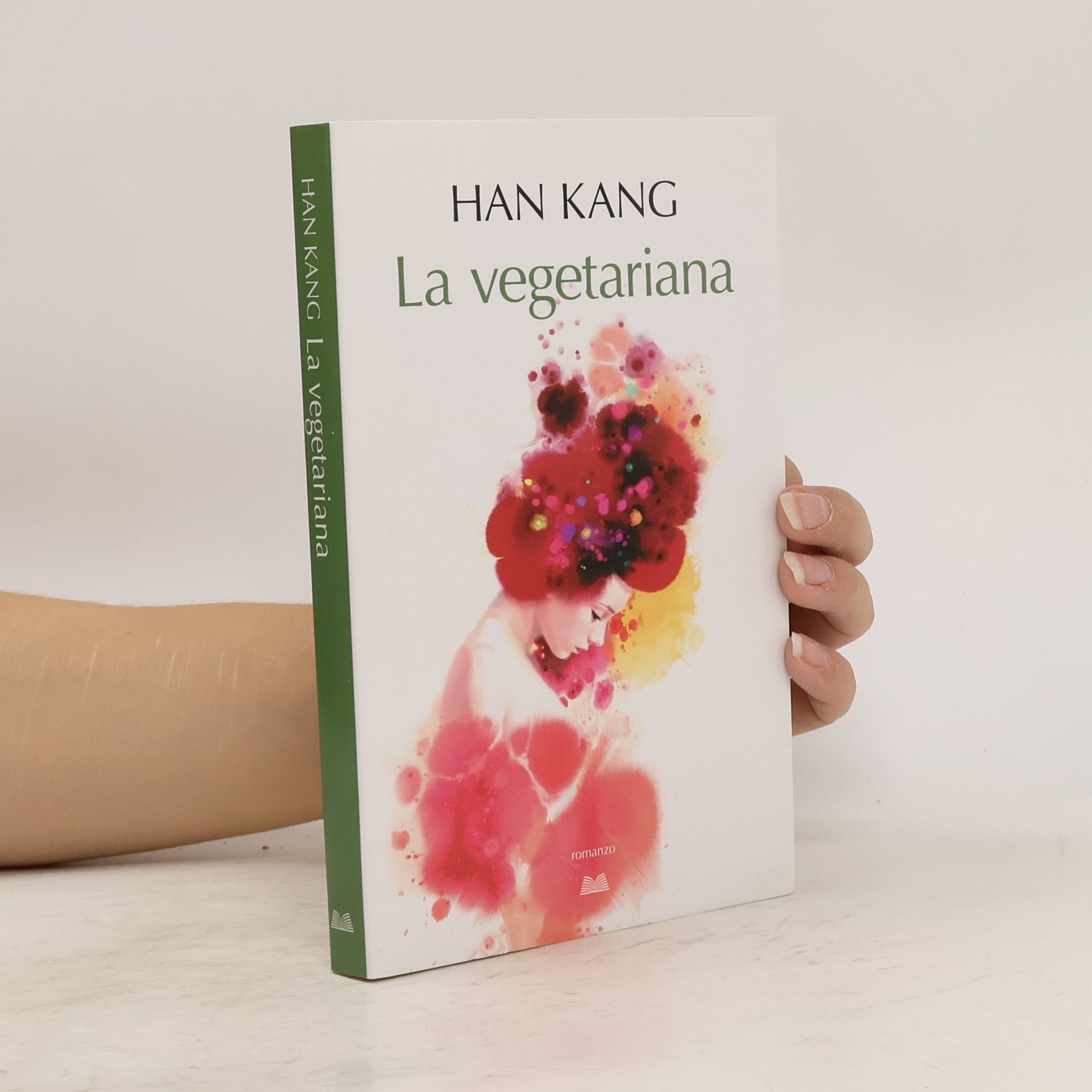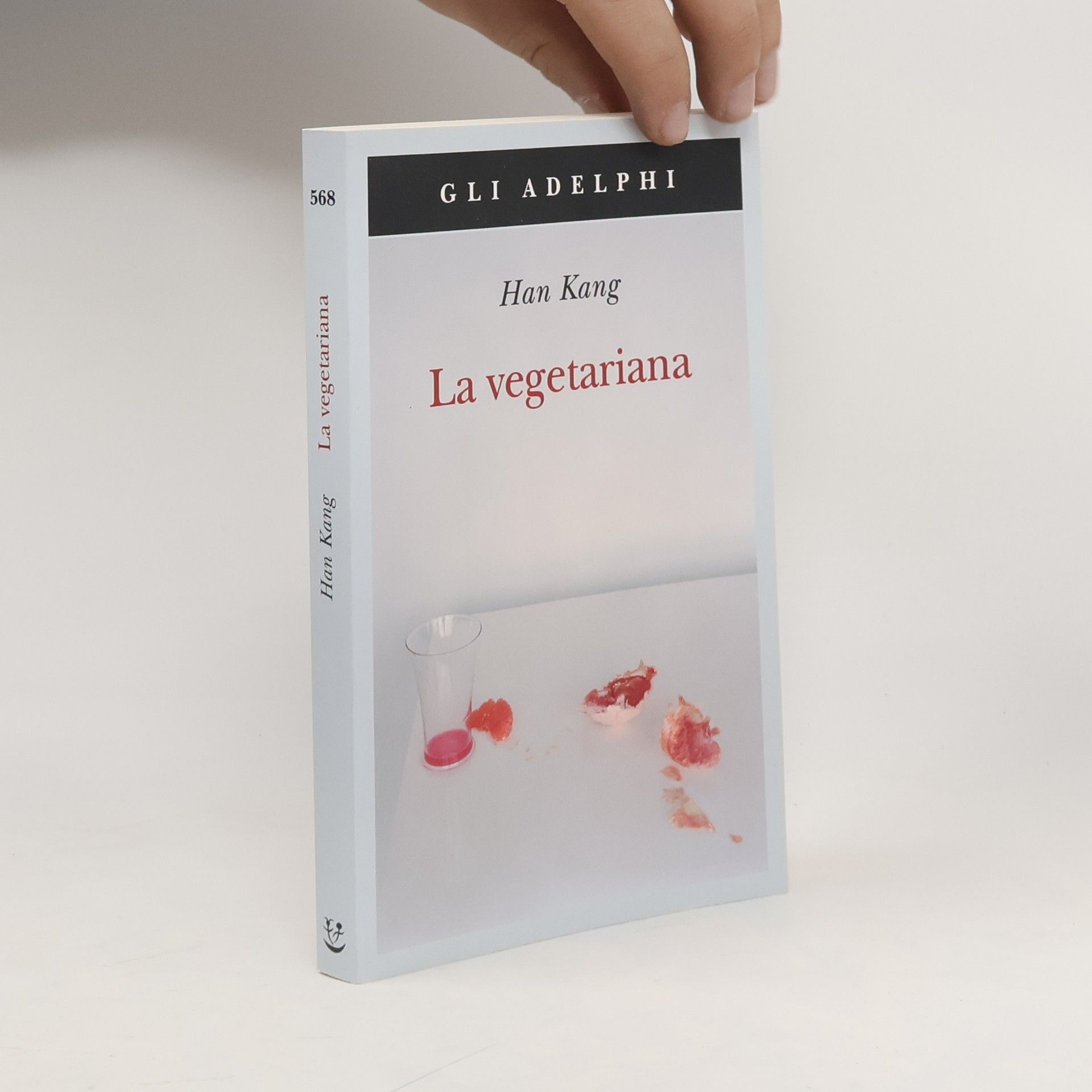Non dico addio
- 265pagine
- 10 ore di lettura
Han Kang è celebrata per il suo sguardo penetrante sulla psiche umana e sul nostro posto nel mondo. Le sue opere esplorano emozioni intense e relazioni complesse con un'elegante unicità stilistica. Han Kang cattura magistralmente la fragilità dell'esistenza umana e la ricerca della bellezza in mezzo a realtà difficili. La sua scrittura è un invito a contemplare l'essenza dell'umanità e il potere dell'arte.







Before the nightmare, Yeong-hye and her husband lived an ordinary life. But when splintering, blood-soaked images start haunting her thoughts, Yeong-hye decides to purge her mind and renounce eating meat. In a country where societal mores are strictly obeyed, Yeong-hye's decision to embrace a more “plant-like” existence is a shocking act of subversion. And as her passive rebellion manifests in ever more extreme and frightening forms, scandal, abuse, and estrangement begin to send Yeong-hye spiraling deep into the spaces of her fantasy. In a complete metamorphosis of both mind and body, her now dangerous endeavor will take Yeong-hye—impossibly, ecstatically, tragically—far from her once-known self altogether.
Compulsively readable and deeply resonant, this novel lacerates, haunts, dreams, and mourns, striking a balance between beauty and urgency. It uniquely captures the intensity of brutality, detailing a bloody history that was deliberately forgotten. The narrative speaks the unspeakable, revealing the long wake of killings through the testimonies of both survivors and the deceased, blending gorily real scenarios with beautifully surreal elements. The prose, translated by Deborah Smith, is spare yet dreamy, filled with haunting imagery that compels readers to confront the horrors of the Gwangju uprising. Han Kang's ambition parallels Milton's struggle, aiming to reconcile humanity with itself through an engrossing, relentless portrait of death and agony. The novel is not just a record of suffering during a contentious period in Korean history but also a testament to the willingness to risk discomfort for a cause. Kang excels in unflinching descriptions of death, creating a vivid portrayal of physical decay that is both admirable and challenging. Her storytelling brings historical struggles into the intimate realm of individual experience, exploring the trauma of political brutality with emotional truth. This jarring depiction of the Gwangju demonstrations raises profound questions about humanity, making it a gripping read. With her previous work awarded the Man Booker International Prize, this follow-up is poised to attract signi
Sixty-five short interconnected chapters portray humanity and all its suffering and resiliency.
A powerful novel exploring the saving grace of language and human connection unfolds in a Seoul classroom, where a young woman observes her Greek language teacher at the blackboard. Struggling to speak, she has lost her voice, while he faces the gradual loss of his sight. As they connect, they uncover deeper shared pain: she has recently lost her mother and the custody of her nine-year-old son, while he grapples with the challenges of growing up between Korea and Germany, torn between cultures and languages. Their story reveals the intersection of their private anguishes—the fading light of a man losing his vision and the silence of a woman who has lost her language. Yet, these very struggles draw them closer, leading to a profound sense of unity. Their voices blend in startling beauty as they journey from darkness to light, from silence to expression. This narrative serves as a tender love letter to human intimacy and connection, awakening the senses and vividly capturing the essence of being alive. The novel has garnered praise for its sensual and provocative imagery, with critics highlighting its extraordinary experience and poetic yet matter-of-fact prose, making it a captivating exploration of nature and the human condition.
Románová novinka nositelky Nobelovy ceny za literaturu Han Kang se podobně jako její próza Kde kvete tráva zabývá skutečnými historickými událostmi. Tentokrát se vrací až k počátkům Korejské republiky, k masakrům, které se odehrály za vlády prvního prezidenta I Sungmana – ke krvavému potlačení povstání na ostrově Čedžu. Mladémuspisovateli Kjonghaovi jednoho zimního dne zavolá kamarádka Inson, která se ocitla v nemocnici v Soulu. Poprosí ho, aby zajel do jejího rodného domu na ostrov Čedžu a postaral se tam o papouška. Když se Kjongha navzdory silné sněhové bouři dostane do horské vesnice, odhalí tam bolestnou historii Insoniny rodiny poznamenané Čedžuským povstáním. Děj se vrací zpět v čase prostřednictvím vzpomínek, záznamů a dalších materiálů, které po celý život shromažďovala Insonina matka v marném pátrání po svém zmizelém bratrovi.
Nobelpreis für Literatur 2024 Der neue große Roman von Han Kang »Unmöglicher Abschied« erzählt die Geschichte einer Freundschaft zwischen zwei Frauen und beleuchtet zugleich ein jahrzehntelang verschwiegenes Kapitel koreanischer Geschichte. Eines Morgens ruft Inseon ihre Freundin Gyeongha zu sich ins Krankenhaus von Seoul. Sie hatte einen Unfall und bittet Gyeongha, ihr Zuhause auf der Insel Jeju aufzusuchen, weil ihr kleiner weißer Vogel sterben wird, wenn ihn niemand füttert. Als Gyeongha auf der Insel ankommt, bricht ein Schneesturm herein. Der Weg zu Inseons Haus wird zu einem Überlebenskampf gegen die Kälte, die mit jedem Schritt mehr in sie eindringt. Noch ahnt sie nicht, was sie dort erwartet: die verschüttete Geschichte von Inseons Familie, die eng verbunden ist mit einem lang verdrängten Kapitel koreanischer Geschichte. Han Kangs neuer Roman ist eine Hymne an die Freundschaft und das Erinnern, die Geschichte einer tiefen Liebe im Angesicht unsäglicher Gewalt – und eine Feier des Lebens, wie zerbrechlich es auch sein mag.
Nobelpreis für Literatur 2024 Von der Autorin des internationalen Bestsellers »Die Vegetarierin« Ein großer Roman über die Einsamkeit der menschlichen Existenz. Eines Tages verschwindet der Bildhauer Jang Unhyong beinahe spurlos. Er hinterlässt seine faszinierenden Gipsabdrücke von Händen und Körpern – und ein bewegendes Tagebuch, das seine lebenslange Suche nach Nähe und Wahrhaftigkeit in einer Welt voller Masken schildert. »Han Kang erzählt zugleich mit großer Brutalität und großer Poesie – eine Mischung, die nur wenigen Schriftstellern gelingt.« stern »Man kann sich dieser Stimme nicht entziehen.« Independent